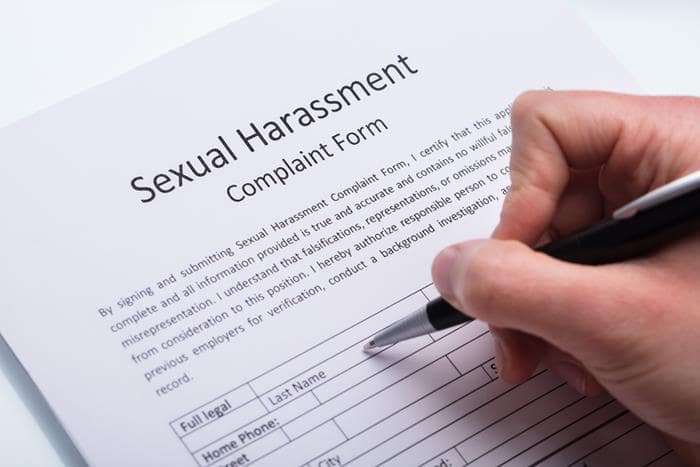California Same-Sex Sexual Harassment Attorney

Same-Sex Sexual Harassment in the Workplace
Sexual harassment is a term that everyone knows, but it is not always a term that everyone understands in its fundamental meaning. California’s Fair Employment and Housing Act (FEHA) protects employees from sexual harassment from supervisors, coworkers, and even third parties at their places of employment. Yet most employees receive sexual harassment training that it makes it seem like FEHA (and similar county and city-level ordinances) only applies to sexual harassment between men and women.
That is incorrect. According to the Office of the Attorney General of California, unlawful sexual harassment under FEHA “includes gender-based harassment of a person of the same sex as the harasser.”
Defining Same-Sex Sexual Harassment
The Court of Appeal’s decision in Mogilefsky v. Superior Court has generally interpreted FEHA to prohibit same-sex sexual harassment to the same extent as sexual harassment between people of different sexual identities or genders. Mogilefsky involved conduct that most people would immediately recognize as sexual harassment in any other context, but for the fact the perpetrator and the victim were both men.
Since that historic decision, the law on sexual harassment as well as same-sex sexual harassment has only grown clearer and more comprehensive. Today, California law and court decisions make clear that sexual desire does not have to drive sexual harassment to make it illegal. It constitutes any conduct that discriminates on the basis of a person’s sex or gender.
For example, a man who is criticized and mocked for effeminate behavior or a woman is chided for how masculine she is has suffered sexual harassment under FEHA. If you are mistreated by coworkers or supervisors in the workplace because you do not conform to gender-based stereotypes, make no mistake—you have suffered sexual harassment.
Of course, FEHA also clearly prohibits discrimination on the basis of sexual orientation, leaving no ambiguity that any form of discrimination on the basis of sex or gender is illegal, regardless of the sex or gender of the perpetrator or the victim. An experienced sexual harassment attorney can advise victims about their rights under these laws.
What to Do When You Are Harassed by a Member of the Same Sex
While both law and society have made great leaps in accepting same-sex relationships, the prospect of sexual harassment by members of the same sex remains an uncomfortable subject. Some people may still feel uneasy about taking action against same-sex harassers.
Only when people are courageous enough to take action against harassers who make their workplace unpleasant will others begin to realize that sexual harassment is no longer limited to situations in which a coworker of the opposite sex gropes someone, but it is instead a matter of any coworker making the workplace uncomfortable in a sex- or gender-related manner for another coworker.
Here are steps to confront same-sex sexual harassment in the workplace that your lawyer may advise you to take:
Contact a lawyer. Your experienced sexual harassment lawyer can guide you through your legal options. Your attorney can help you file a complaint through the proper channels at your workplace. The law regards sexual harassment as a serious issue, no matter how much employers might try to sweep a complaint under the rug. If your employer’s actions or inactions fail to stop the harassment, a lawyer skilled in employment law can help advise you as to what steps you can take next, the benefits and drawbacks of each potential step, and what outcomes you might expect.
Look into employer reporting procedures. Many companies have a way to report sexual harassment in the workplace. In many cases, this can prove as simple as lodging a complaint with your human resources representative. Your employer can issue warnings and take disciplinary action if harassment continues. If your workplace has no such clear-cut way of reporting sexual harassment, then your outlet may instead involve reporting the behavior to an appropriate supervisor.
However, we have all heard the tales. Victims sometimes make a report and find that nothing happens. Instead, sexual harassment continues and the victim may even face both professional and unprofessional retaliation for making the complaint. Contact an experienced sexual harassment attorney before filing a complaint so you can protect your rights throughout the complaint process.
File an administrative complaint. One option an experienced lawyer will likely discuss with you is filing an administrative complaint with the California Department of Fair Employment and Housing (DFEH). The DFEH enforces the civil rights of California workers, including under FEHA. If appropriate, an attorney can help you through the process of filing a complaint with DFEH, can help you prepare the complaint, and can follow up with the agency after the complaint is filed. The agency will investigate the complaint and may attempt to address the issue with your employer. If the complaint does not resolve the matter, DFEH may issue a right to sue letter, clearing the way for you to pursue legal recourse in court, if you and your attorney decide that’s the appropriate course of action.
Remember That You are Not Alone
When you are a victim of same-sex sexual harassment, you are not alone in this. Same-sex sexual harassment happens more than people think, but many victims are afraid to speak up about it. They don’t want the stigma that comes with same-sex sexual harassment, even if it didn’t involve sexual touching or activity. They don’t want their coworkers to think of them as someone who can’t take a joke. But there is no excuse for workplace sexual harassment of any kind.








